Does San Diego have hard water? If yes, how hard is San Diego’s water?
Approximately 1.39 million people living in San Diego, the 2nd most populous city in California, are suffering from hard water problems. The most recent “Annual water quality report” published by the San Diego Regional Water Control Board says drinking water in San Diego contains 16 grains per gallon or 276 parts per million hard minerals. Depending on the water demand and the area of the city, the water hardness level can range from 16 to 18 grains per gallon (or 272 to 284 parts per million). Based on the standard water hardness scale set by the federal government, water in San Diego is considered “Very Hard”.
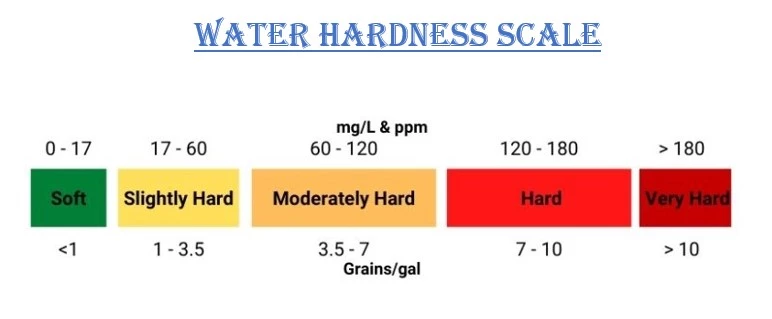
Where does San Diego get its water?
Data shows that the city of San Diego needs more water than it can collect from rainwater and local sources. According to the San Diego Regional water control board, the city imports 80% of the total water supply from the CA State Water Project in Northern California, and the Colorado River. The remaining 20% comes from rainwater and various local sources. The local source of water includes:
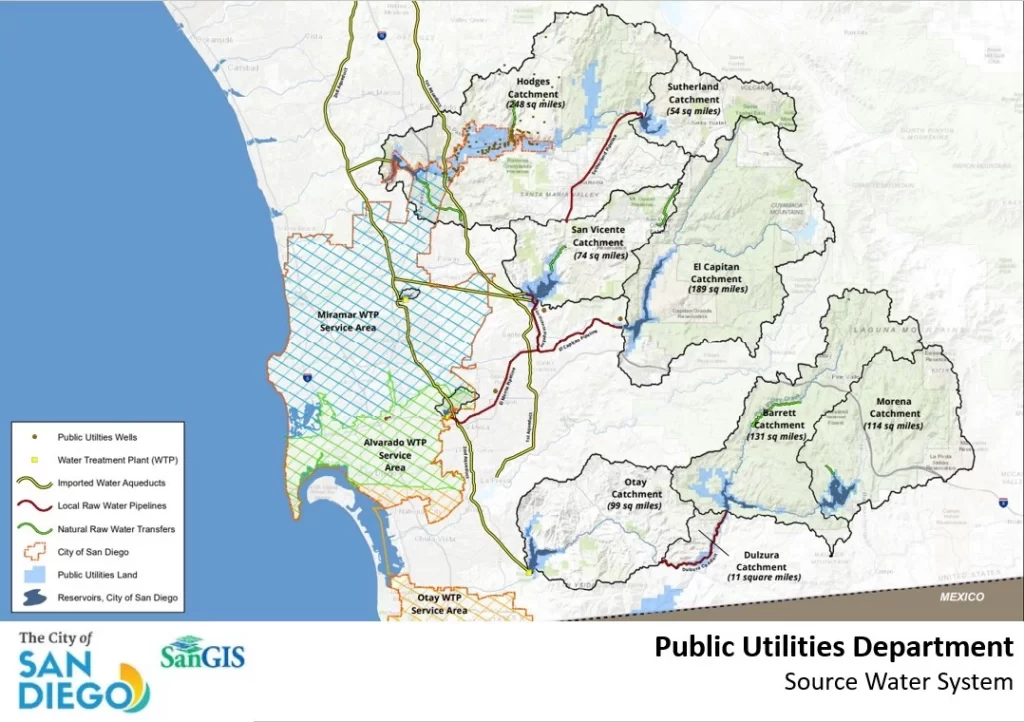
Surface Water: As of now, the city of San Diego has 9 surface water reservoirs. These reservoirs have been built to store local rainwater and imported water from the Colorado River. San Diego’s three (Alvarado, Miramar, and Otay) water treatment plants take water from these reservoirs, treat it, and distribute it to the city. Combined these reservoirs have the capacity to hold about 300,000 acre-feet of water, which is around 10% of the city’s total water supply.
Recycled Water: Recycled water, although not much, reduces the dependency on imported water for San Diego City. The city currently owns 2 water reclamation plants: The north city water reclamation plant and the South Bay water reclamation plant. These plants treat wastewater up to a limit that is approved by the federal and local governments for irrigation, manufacturing, and other non-drinking or non-potable purposes.
Pure Water: The Pure Water Project is San Diego City’s multiphased multi-year project that is expected to be completed in 2035. Upon completion, it will be able to produce 40% of the city’s water supply within the city. The city is installing advanced water purification technology to produce 83 million gallons of drinkable water by treating wastewater. The main purpose of this project is to reduce dependency on imported water and diversify the water source for the City of San Diego.
Install a Home Water Filter & Get "Unlimited Safe Drinking Water" For Decades
Get Upto 55% Discount With a Lifetime Warranty & 6-Months Money Back Guarantee Free Shipping
SpringWell Water Filtration Systems: 100% American-Made & NSF Certified Water Filters and Water Softeners
Groundwater: Groundwater is another important source of water for the City of San Diego. Currently, the city collects 100 acre-feet of water per year from the San Diego River Valley Groundwater Basin. The surface area of this basin is around 15.4 square miles. The city bores 1000 feet deep wells to lift water from the basin.
Why is San Diego’s water so hard?
As mentioned before 80% of San Diego’s water supply comes from the Colorado River and the California state water project. The California state water project itself collects water from the Feather River. So directly speaking, San Diego’s water comes from The Colorado River and The Feather River.
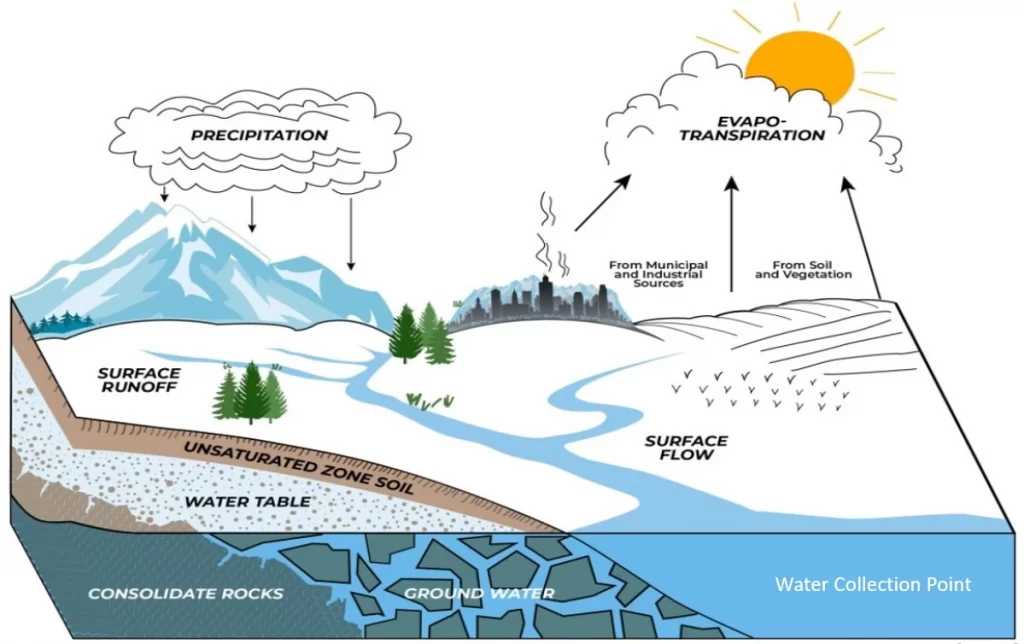
The Colorado River is a 1,450 mile-long river. From its starting point at the La Poudre Pass Lake in the Rocky Mountains, the river water travels thousands of miles through various landscapes including the Great Basin, the Sonoran, the Mojave Desert, and several other rocky formations. As the water travels it comes in contact with natural minerals such as calcium, magnesium, manganese, iron, uranium, radium, etc. All those minerals dissolve in water and make it extremely hard. Similar things happen with the Feather River water as well.
In short, the 2 primary sources of San Diego’s water supply are filled with hard water. That’s why distributing water in San Diego city is hard.
Do you need to use a water softener in San Diego?
Of course, you need to use a water softener in San Diego. The city’s water treatment plant does not treat water for hardness. So, it is the individual’s responsibility to use a water softener to get rid of hard water.
What kind of water softener is suitable for San Diego?
In 2009, the state of California banned salt-based water softeners. Because a standard-sized salt-based system uses 70-100 gallons a week to backflush itself. In the process, it wastes a ton of water and produces ‘Water Softener Discharge’ that is not healthy for the environment. Salt-heavy water softener discharges kill grass, vegetables, and plants within days. If dumped into sewer pips, these discharges can wreak havoc on the city’s wastewater treatment plant.
So that’s left you with 2 choices, either you can use a whole-house anti-scale water filter or a dedicated salt-free water softener ( also known as a Water Conditioner).
An anti-scale water filter treats hard water and purifies it at the same time. On, the other hand, a water conditioner neutralizes the hard water effects only. It doesn’t include a water filter necessary to remove impurities that may come with the water supply.
However, both of those systems are affordable costing about 500-700 dollars. They don’t need any maintenance and have the capacity to provide 1 million gallons of water before media replacement is needed.
Water Softener for San Diego
- Anti Scale Water Filter; Drink the healthiest water on Earth as your home water filter reduces over 65 different impurities from your water while protecting your home from the formation of scale and corrosion
- Whole House Water Filter; Reduce harmful impurities from your entire home’s water with Express Water’s 3 Stage Water Filtration System; Express Water’s water filtration systems are ready to install with 1” inch standard connections
- Durable Whole House Water Filter; Express Water Whole Home Water Filtration Systems are constructed with standing stainless-steel frames for long term durability and quality
- On Demand Support; Support from experts who can answer any of your questions about your new home water filter; Quality Guaranteed; Rest easy with our 1-year warranty on all Express Water Whole Home Water Systems
- This whole house system is installed at the main water supply line for the purpose of treating all incoming water; Unlike RO systems, this system will NOT reduce TDS, if you are searching for a filter that reduces TDS, see our RO systems
- Easy to Replace Water Filter Cartridges: All Express Water whole house water filter replacement cartridges are designed for quick and easy replacement to keep your system up and running
- Clean, Great Tasting Water From Every Tap In Your Home - Removes 97% of chlorine. Plus, activated carbon is effective at reducing organic chemicals including pesticides, herbicides, and VOCs while allowing for a flow rate up to 11.8 gallons per minute.
- High-Performance Filter System - Salt-free conditioner, carbon & KDF filtration engineered to maximize filtration and reduce scale while leaving healthy minerals in your water. This system will NOT reduce Total Dissolved Solids (TDS)
- Cost Efficient & Long Lasting - Clean water for less than dollars0.01 a gallon - Save twice as much compared to other brands on purified water for 1 million gallons or 10 years
- Easy Maintenance - No draining or back flushing needed - Easily replace pre and post filters every 2 months for best filtration and flow rate
- Top-Grade Install Kit & Components - System includes filter tank, conditioner tank, 20" pre-filter, post-filter, brass fittings for 1'' or 3/4'' pipes, bend supports, and shut-off valves – Item may ship in more than one box and may arrive separately
- Salt-Free Scale Prevention - The AO-WH-DSCLR naturally reduces scale build up in pipes and plumbing using a salt & chemical-free system. No cleaning, backwashing, salt-bags or electricity required.
- Works For All Your Water Needs - System works effectively on water for use in drinking, cooking, showering & bathing. Perfect for households of 4 or more people. System will not reduce TDS, sulfur, or iron.
- Well Or City Water - Our Whole House Descaler is engineered to work with both well & city water systems.
- Long Lasting & Cost Efficient - Reduces scale build-up for up to 6-Years or 600,000 Gallons. System includes a 6-Year warranty.
- Includes one Whole House Descaler, shut-off valve, hose adapter and nipple - Limited 6-year warranty.
Is San Diego tap water safe to drink?
In general, San Diego tap water is safe for drinking. The regional water control board of San Diego, which regulates and controls the public water supply, has been providing safe drinking water to the public. The water quality of San Diego’s tap water meets the standard set by the Environmental Protection Agency (EPA). San Diego’s water treatment plant treats water in 6 stages before sending it to the city.
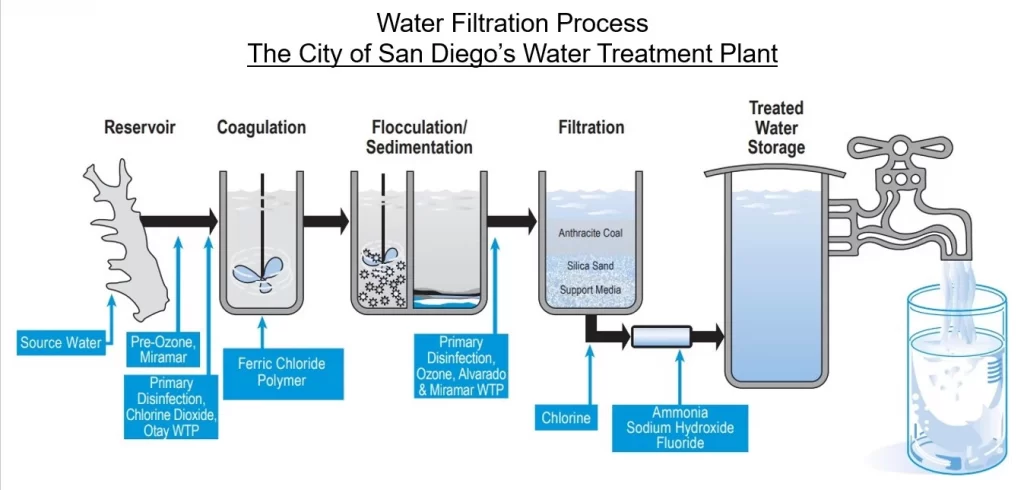
Coagulation: It is a chemical process. Most of the pollutant particles found in untreated water have negative charges which make them repel each other. The city water treatment plant adds coagulants that create a chemical reaction in the water. The reaction changes those negatively charged particles to neutral.
Flocculation: After the coagulation process, neutral particles start to bind together and create floc. Floc looks like a snowflake suspended in water. Floc is visible to the naked eye and much easier to remove from water than a single particle.
Sedimentation: Since the flock is heavier than water, it sinks and rests at the bottom of the water. In the sedimentation stage, the water treatment plant collects clear water from the top.
Disinfection (primary): After that, they use Ozone/ chlorine dioxide to disinfect the water. The Alvarado and Miramar treatment plants use the ozonation technique, whereas the Otay water plant uses chlorine dioxide. Disinfection is necessary to remove viruses, bacteria, and other pathogenic organisms from water.
Filtration: Disinfected water is then pushed through deep filtration beds. Filtration beds have extremely small pores. So, only water molecules pass through the beds. All other contaminant particles, even the tiniest ones, get extracted in this stage.
Disinfection (Secondary): finally, the water treatment plant adds chlorine and ammonia to the water. The mixture of these chemicals created chloramine that prevents microbial contamination from occurring in the water distribution system.
Why does San Diego water taste bad?
Tap water in San Diego tastes bitter and chalky. The reason behind this is excessive water hardness. As mentioned before, hard water contains calcium and magnesium ions. Those ions convert to calcium carbonate and magnesium carbonate by reacting with carbon and oxygen from the air. Widely, calcium carbonate is known as CHALK.
So when you drink San Diego’s tap water, you drink dissolved chalk as well. That’s why San Diego’s rap water tastes so bad.
If you want to improve the odor and taste, you should try Zerowater or Epic water filter pitcher. Both are good at filtering city water. Remember, they might not be able to 100% of the bitter taste, but they will improve it for sure.
And if you are extremely sensitive to the bitter taste and want to completely eliminate it, try a Reverse Osmosis Water Filter. Reverse Osmosis water filters with their 0.0001-micron pore-sized filter cartridge can remove 100% of the calcium carbonate from tap water.
- IS YOUR WATER SAFE TO DRINK? Studies continue to pour in regarding Toxins, Hormones, Microplastics, Cancer-linked contaminants, known Carcinogens and other toxins discovered in our Tap Water, Filtered Water…and yes, even Bottled Water. Arsenic, lead, chromium, and drug residues are commonly found in municipal drinking water. AQUA TRU's patented Ultra Reverse Osmosis water filtration system is CERTIFIED to remove such contaminants and many more!
- IS YOUR WATER SAFE TO DRINK? Studies continue to pour in regarding Toxins, Hormones, Microplastics, Cancer-linked contaminants, known Carcinogens and other toxins discovered in our Tap Water, Filtered Water…and yes, even Bottled Water. Arsenic, lead, chromium, and drug residues are commonly found in municipal drinking water. AQUA TRU's patented Ultra Reverse Osmosis water filtration system is CERTIFIED to remove such contaminants and many more!
- Tested and certified by IAPMO according to NSF/ANSI standards to remove 82 CONTAMINANTS - that's 15X more contaminants than the leading pitcher filters. Removes such toxins as Lead 99.1%, Chromium 97.2%, Copper 95.2%, Fluoride 93.5%, Radium 96.4%, and Chlorine 96.6% (to name a few). In fact, it's designed to remove 1000's of pollutants that could be lurking in your tap water. Taste the Difference!
- NO PLUMBING OR INSTALLATION required - takes just minutes to set up. AquaTru’s Trusted & warrantied RO countertop system COSTS CONSIDERABLY LESS than fully installed under-the-counter RO systems, while at the same time, delivering often Cleaner, Purer, and Better Tasting Water. Why waste money & add to landfills with bottled water (93% recently found tocontain micro-plastics)? 1 SET OF FILTERS REPLACES 4500 PLASTIC WATER BOTTLES (16.9 oz) - Forget about the hassle & cost of buying bottled water
- QUICK CHANGE TWIST AND SEAL FILTERS come included with your first AQUA TRU system, and last from 6 months to 2 years
Is there lead in San Diego Tap Water?
Yes, lead is being found in San Diego tap water. According to test reports published in “San Diego, Annual Water Quality Report” sample water taken from multiple houses contains lead. A point to note here is that water sent from the treatment plant does not contain lead. Meaning that when water travels from the plant through the water line to individual houses, it gets contaminated with lead somewhere along the way.
It happens with those houses that use lead-made water service lines and faucets. For those of you who don’t know, a water service connects a house with the main water line. Constant water pressure breaks tiny particles from pipes and carries those pieces all the way to your water jug. People who have unknowingly installed lead pipes in their house, most likely have been drinking lead-contaminated water. You can use a lead testing kit to know for sure.
Since the problem occurs at individual houses, the Regional water control board of San Diego advises using a point-of-use water filter. Activated Carbon and Reverse Osmosis: both types of water filters are effective at removing lead from drinking water.
Is there fluoride in San Diego water?
In the 1990s, the state of California passed a law, “The California Fluoridation Regulations”, that enforces water suppliers to fluoridate their water supply. Since then, the city of San Diego has been adding fluoride to its water supply.
As you may know, Fluoride is a naturally occurring mineral. In San Diego water, the amount of fluoride ranges from 0.23 parts per million. To meet fluoridation regulation standards, the San Diego water plant adds fluoride to water so that fluoride levels in water reach 0.7 to 0.8 parts per million.
Fluoride in water prevents microorganism growth and has also proven to be beneficial for dental health.
San Diego Tap Water: Frequently Asking Questions
How much is the water bill in San Diego?
Water in the city of San Diego costs twice as compared as in other cities in the U.S.A. On average, homeowners in San Diego pay 80 dollars per month for water.
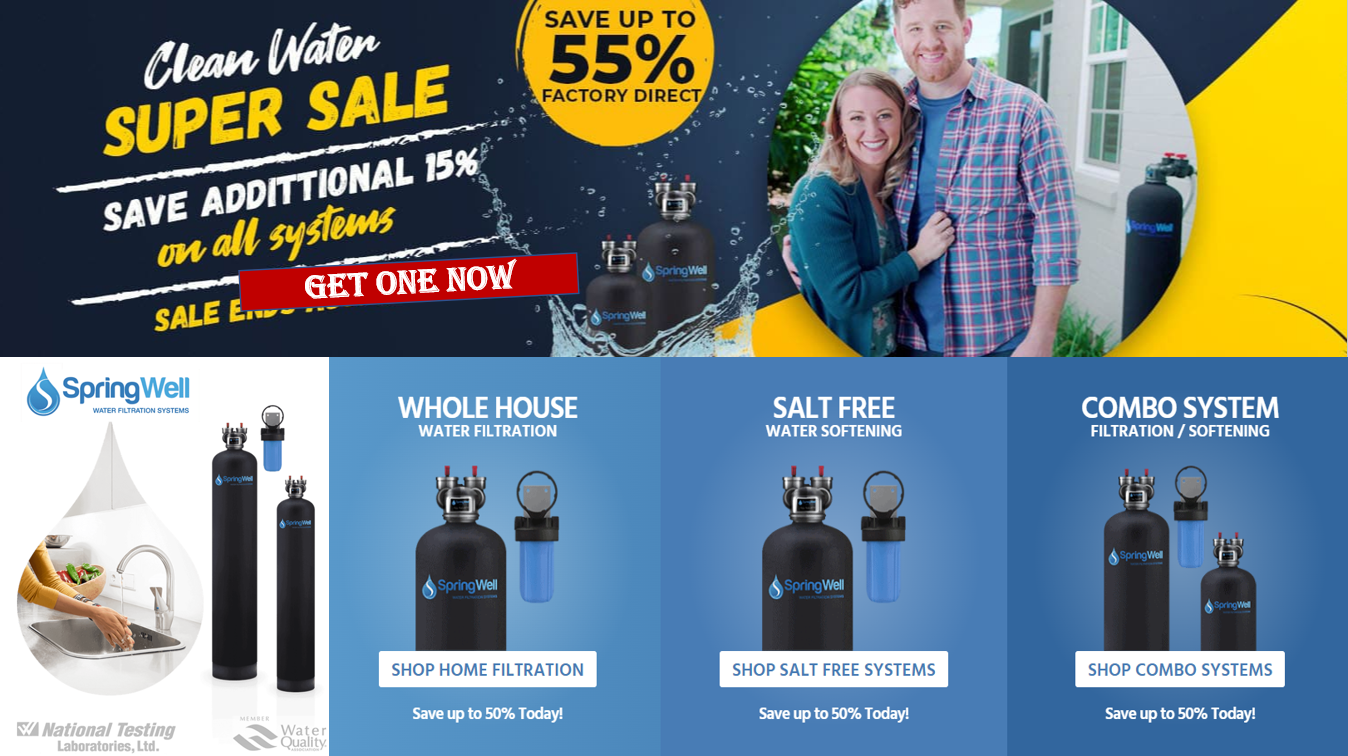
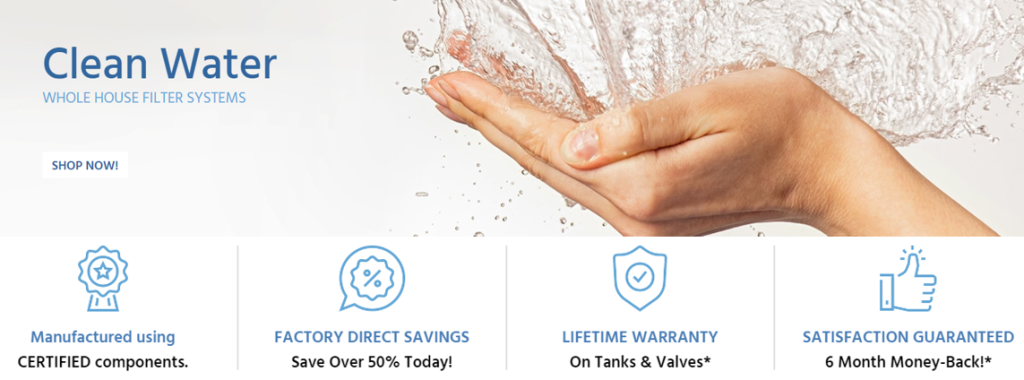
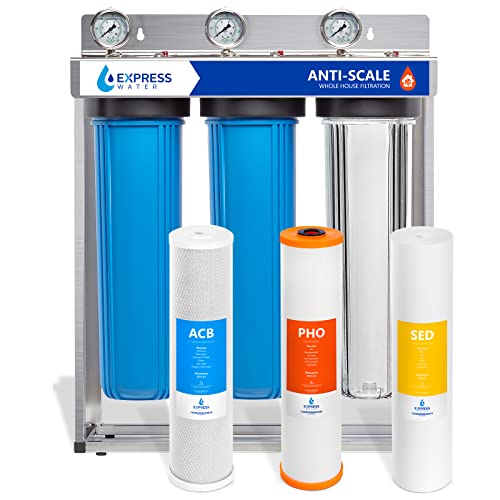
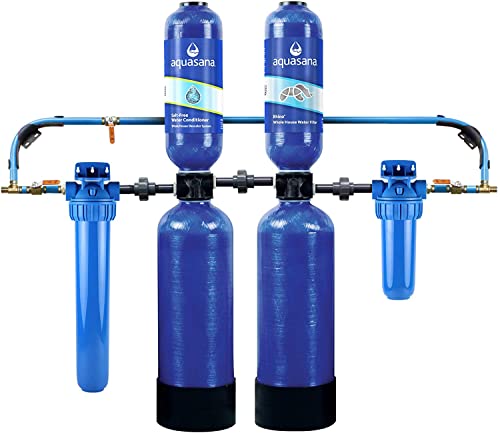


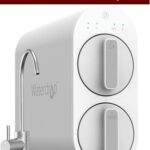
[…] Does San Diego have hard water? […]
[…] Does San Diego have hard water? […]
[…] Does San Diego have hard water? […]
[…] Water Softener For San Diego […]
[…] Does San Diego have hard water? […]
[…] Does San Diego have hard water? […]